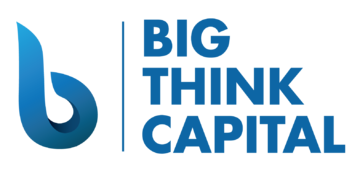
The Small Business Administration 7(a) Loan Program offers a beacon of hope for many small businesses seeking a financial helping hand. The program provides a guarantee for loans that banks lend to businesses, making it easier to secure financing. This article guides you on how to maximize approval chances for the SBA 7(a) Loan Program, uncover the underlying details of the program, improve your qualification, follow through the application process, and navigate any challenges you may encounter.
Breaking Down the SBA 7(a) Loan Program
The 7(a) loan program is the Small Business Administration’s (SBA’s) primary program for providing financial assistance to small businesses, available for purposes like starting, acquiring, or expanding.
Understanding the SBA’s Role
The SBA does not directly loan money to small business owners. Instead, it sets guidelines for loans and works with various lending partners to provide the financing. The SBA guarantees a portion of 7(a) loans made by them to induce lending to small businesses.
This loan guarantee provides several benefits to borrowers like lower down payments, longer repayment terms, and lower interest rates compared to conventional business loans.
Basic Requirements of the SBA 7(a) Loan Program
To qualify for an SBA 7(a) loan, the applicant business must:
- Be based in the United States
- Be a for-profit business
- Qualify as a small business based on SBA size standards
- Demonstrate the ability to repay the loan from the business’s cash flow
Loan amounts up to $5 million are available. The SBA does not set a minimum FICO credit score requirement, but individual lenders may have their own minimums.
Improve Your Qualification: Top Strategies to Secure SBA 7(a) Loan Approval
Evaluate and Repair Your Credit Score
Having a good personal credit score over 700 will improve your chances of loan approval and getting better terms. Review your credit reports from Equifax, Experian, and TransUnion for any errors. Work on resolving any outstanding tax liens, collections, defaults, or bankruptcies.
A business credit score is also examined. Build up your business credit history by taking out and repaying small lines of credit or merchant cash advances.
Prepare Comprehensive and Detailed Business Plan
Lenders want to see a viable business plan that demonstrates how the 7(a) loan proceeds will be used and how the loan will be repaid. Include financial projections showing anticipated income and expenses over the next 1-3 years.
For an existing business, provide several years of financial statements and tax returns. Be ready to explain any losses or declines.
Show Consistent and Strong Business Revenue
Producing steady sales and profits makes for a more attractive 7(a) applicant.
For a new business, the owner’s experience in the industry can help offset the lack of an operating history. Consider using an SBA 504 loan to finance real estate and an SBA Express loan for working capital at startup.
For an existing business, highlight any growth in customers, repeat business, and profits over time.
Practical Steps for Application
Applying for an SBA 7(a) loan may seem daunting, but breaking it down into clear steps can simplify the process. Here are some practical steps to take:
Understanding the Application Process for the SBA 7(a) Loan Program
The first step is gaining a solid understanding of the SBA 7(a) loan program and application process.
The 7(a) loan program is the SBA’s primary program for providing financial assistance to small businesses. 7(a) loans are provided by lenders and guaranteed by the SBA, meaning if the borrower defaults, the SBA will repay a portion of the outstanding loan balance.
To be eligible, businesses must meet the SBA’s definition of a small business, be based in the United States, have invested equity in the business, and demonstrate the need for the desired credit. The application process involves submitting documents and financial records to demonstrate eligibility and creditworthiness.
Gather and Organize Necessary Documents
The SBA requires several documents to review as part of the application. Being thorough and organized with your documentation can help streamline the application process. Some key documents needed include:
- Several years of business and personal financial statements and tax returns
- Business plan including purpose of the loan and history of the business
- Debt schedule listing current business debts and personal liabilities
- Collateral documents like property deeds, equipment/vehicle titles, etc.
- Resume(s) of principal business owners
Having all documents ready for submittal helps demonstrate preparedness and expedites application review.
The Importance of Finding Your Preferred Lender
7(a) loans are provided by SBA lending partners, rather than directly from the SBA. Finding the right lender is key to getting the best rates and loan terms. Consider lenders you have existing relationships with or research SBA Preferred Lenders in your area. Compare interest rates, interactions with their representatives, and ease of application process.
Establishing a relationship with a lender ahead of time allows you to ask questions to understand their lending practices. Being prepared is especially important given the complexity of the 7(a) application.
Anticipating Challenges and Overcoming Roadblocks
Common Roadblocks for SBA 7(a) Loan Applicants
There are some common obstacles and mistakes 7(a) applicants encounter that can slow down the process:
- Insufficient Credit: Lenders want to see a credit score typically 680 or higher.
- Low Revenue / Profit: Businesses must demonstrate historical and projected ability to repay.
- Lack of Collateral: Most 7(a) loans require collateral to secure the loan.
- Complicated Business Structure: Simpler is better when it comes to business structure and tax documentation.
- Incomplete Documents: Having organized records readily available is key.
While qualifying for traditional financing may be difficult due to these factors, SBA loan programs were created specifically to help borrowers overcome these challenges.
Essential Tips to Mitigate Potential Loan Denial
If you anticipate running into some of these snags, the best course is to be upfront and take mitigating steps:
- Provide equity injection if possible—while not required, injecting even 10-15% equity can really help an application.
- Have a strong down payment for collateral shortfall.
- Highlight alternative types of collateral you may be able to provide.
- Emphasize other positive attributes to offset weaknesses.
- Make sure your business plan convincingly shows ability to repay.
- Consider a smaller loan request or shorter repayment term.
Taking proactive measures to counteract weaknesses in an application increases the chances of overcoming those hurdles.
The Impact of Defaulting on Your SBA 7(a) Loan
Defaulting on an SBA-guaranteed loan can have serious consequences:
- Your business assets and collateral may be seized and liquidated.
- Your credit score will take a major hit making financing difficult in the future.
- You may be personally liable for loan balance repayment.
- There may be lawsuits, loan penalties, and legal action.
- Future eligibility for SBA assistance is jeopardized.
Avoiding default needs to be a top priority. Have a detailed plan for repaying the loan before taking it out, and be ready to make adjustments to prevent issues down the road. Defaulting on an SBA loan should be absolutely the last resort.
Maximize Your Chances of Acquiring an SBA 7(a) Loan With Big Think
Securing an SBA 7(a) loan can be the catalyst that propels your business toward growth and success. At Big Think Capital, we are committed to helping you maximize your chances of approval.
Our experienced team understands the intricacies of the SBA loan application process. We specialize in tailoring financing solutions that align with your unique needs and aspirations. Contact Big Think Capital today and let us help you navigate the path to SBA loan approval.








